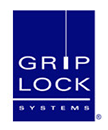Industry News
2014 Another Year Of Accomplishment For The National Lighting Bureau
January 13, 2015
“I have to believe that we are on the verge of some major breakthroughs, in large part because of the versatility and tunability of LED lighting.” So said the National Lighting Bureau’s outgoing chair, Howard P. Lewis (Viscor Group of Companies), in reviewing the Bureau’s 2014 accomplishments at the conclusion of his fifth and final year in office. The Bureau is an independent, IRS-recognized, not-for-profit lighting-education foundation that has served as a trusted public-information source since its founding in 1976. Its purpose is to help people make better decisions about lighting.
The Illuminating Engineering Society of North America’s (IES’) representative on the Bureau’s board of directors, Mr. Lewis led the organization through one of the most challenging economic periods in U.S. history. “While on the one hand we have been dealing with the economy and its impact on lighting, on the other hand we’ve had to deal with the phase-out of outdated incandescent technology and exciting new applications for emerging lighting technologies, LEDs [light-emitting diodes] in particular.”
The “major breakthroughs” Mr. Lewis addressed had to do in particular with lighting’s ability to improve the lives of older Americans who require institutional care. He said, “The Bureau’s ‘technology-transfer’ role has never been more important, for the lighting community and for those who stand to benefit from the help effective lighting can provide. While, unquestionably, therapeutic lighting will become far more effective as time goes on, right now – today – it’s available to make a significant difference in the lives of those who have been affected by dementia, especially seniors and especially those seniors whose dementia requires institutionalization.”
Light and health was one of four topics that Bureau-developed panels of experts discussed for the Bureau’s annual video-recorded forum, produced by the Edison Report. Two of the three other panels – “Light and Productivity” and “Outdoor Lighting Safety and Security” – also focused on the benefits provided by what the Bureau calls High-Benefit Lighting®; i.e., lighting that is designed to illuminate the specific visual tasks involved and thereby provide valuable benefits. The Bureau also put together a panel that discussed some of the problems that occur when specifying LED lighting, including some manufacturers’ inability to supply products it had available when they were specified, typically 12 to 18 months before they were ordered for use in new construction.
The Bureau reaches its various audiences principally via news releases. “In 2014, we reached an estimated minimum of five- to six-million people,” Mr. Lewis said, noting that Bureau releases and excerpts from them were published in “hard-copy newspapers as well as newspapers’ websites. We have been quoted in magazines and e-zines, brochures, and newsletters; in Facebook, and on Twitter; in textbooks and scholarly research reports. We call the Bureau the independent voice of America’s lighting community; a trusted source of unbiased information about lighting. I sincerely believe that statement is 100 percent accurate….”
The Bureau also maintains a website (www.nlb.org) that Mr. Lewis characterized as “a go-to source….Our website continues to include an interactive database of more than 300 professional lighting designers, whom we list free of charge as a public service. Website visitors are also able to use our Information Desk service. Staff responds quickly to those seeking answers.”
Concluding his remarks, Mr. Lewis said, “Serving as the Bureau’s Chair these past five years has been an incredible honor. I’m stepping down, but by no means am I stepping out. Volunteer service to the National Lighting Bureau is an opportunity to serve the lighting community to which we all owe so much.”









































